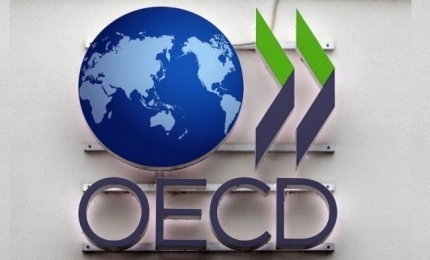S. Korea's employment rate of university grads ranks low among OECD: report
By YonhapPublished : Nov. 18, 2021 - 09:13

South Korea ranks low among members of the Organization for Economic Cooperation and Development (OECD) in terms of the employment rate for university graduates due mainly to a severe mismatch between their majors and job openings, a report showed Thursday.
The employment rate for South Koreans aged 25-34 with university diplomas came to 75.2 percent in 2020, the 31st lowest among 37 comparable OECD member countries, according to the report from the Korea Economic Research Institute (KERI).
The figure is much lower than 90.6 percent for Britain, 88.4 percent for Germany and 87.8 percent for Japan.
Only Sweden, Turkey, Greece, Italy, Costa Rica and Columbia had lower rates. There was no comparable figure for Chile.
KERI, the research arm of the Federation of Korean Industries, or the lobby for family-controlled conglomerates, cited a mismatch between university graduates and job openings.
The mismatch rate for South Korean university graduates stood at 50 percent, the highest among 22 comparable OECD members.
Also responsible is the fact that growth of jobs for people with high education backgrounds has failed to catch up with the increase in the number of university graduates.
The number of university graduates expanded at an annual average rate of 3 percent between 2013 and 2020, while that of jobs for university graduates and over gained 1.3 percent.
KERI also said the ratio of university graduates outside the labor force amounted to 20.3 percent last year, the third-highest figure among the 37 comparable OECD members.
The think tank called on the government to eliminate job-related regulations and ramp up efforts to make the country's labor market more flexible. (Yonhap)
The employment rate for South Koreans aged 25-34 with university diplomas came to 75.2 percent in 2020, the 31st lowest among 37 comparable OECD member countries, according to the report from the Korea Economic Research Institute (KERI).
The figure is much lower than 90.6 percent for Britain, 88.4 percent for Germany and 87.8 percent for Japan.
Only Sweden, Turkey, Greece, Italy, Costa Rica and Columbia had lower rates. There was no comparable figure for Chile.
KERI, the research arm of the Federation of Korean Industries, or the lobby for family-controlled conglomerates, cited a mismatch between university graduates and job openings.
The mismatch rate for South Korean university graduates stood at 50 percent, the highest among 22 comparable OECD members.
Also responsible is the fact that growth of jobs for people with high education backgrounds has failed to catch up with the increase in the number of university graduates.
The number of university graduates expanded at an annual average rate of 3 percent between 2013 and 2020, while that of jobs for university graduates and over gained 1.3 percent.
KERI also said the ratio of university graduates outside the labor force amounted to 20.3 percent last year, the third-highest figure among the 37 comparable OECD members.
The think tank called on the government to eliminate job-related regulations and ramp up efforts to make the country's labor market more flexible. (Yonhap)



![[Herald Interview] 'Amid aging population, Korea to invite more young professionals from overseas'](http://res.heraldm.com/phpwas/restmb_idxmake.php?idx=644&simg=/content/image/2024/04/24/20240424050844_0.jpg&u=20240424200058)














![[KH Explains] Korean shipbuilding stocks rally: Real growth or bubble?](http://res.heraldm.com/phpwas/restmb_idxmake.php?idx=652&simg=/content/image/2024/04/25/20240425050656_0.jpg&u=)

